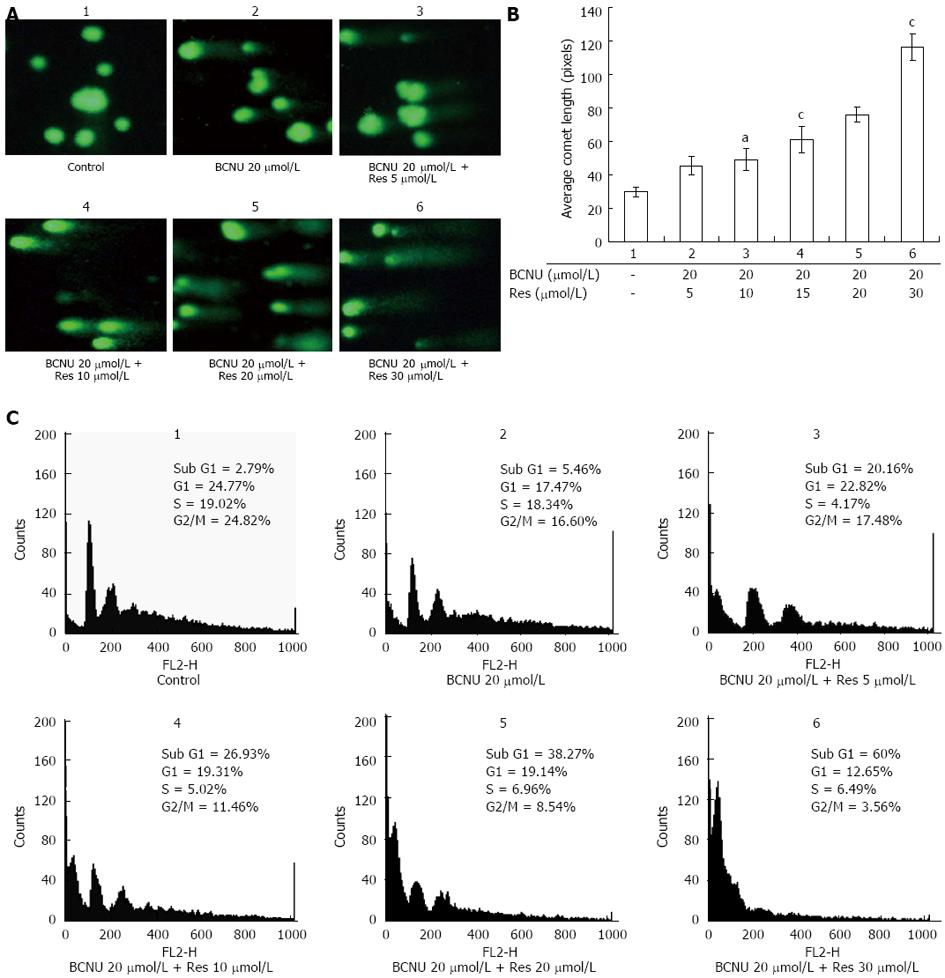Copyright
©2013 Baishideng Publishing Group Co.
World J Gastroenterol. Nov 14, 2013; 19(42): 7374-7388
Published online Nov 14, 2013. doi: 10.3748/wjg.v19.i42.7374
Published online Nov 14, 2013. doi: 10.3748/wjg.v19.i42.7374
Figure 2 Regulation of cell cycle and genotoxicity of HCT-116 cells after 1,3-Bis(2-chloroethyl)-1-nitrosourea and/or resveratrol treatments.
A: Comet assay showing the DNA damaging effect of the drugs in HCT-116 cells. Images were taken using a fluorescent microscope (Nikon-Eclipse, Japan) at × 20 magnification. Data are the representation of one of the replicates of three different experiments; B: Bar diagram represents the average comet - length in pixels as obtained from TriTek CometScore™ software. Data are the mean ± SD of three different experiments, aP < 0.05 vs 20 μmol/L BCNU + 5 μmol/L Res; cP < 0.05 vs 20 μmol/L BCNU + 20 μmol/L Res; C: Effect of the drugs on cell cycle regulation. After treatment as mentioned in the materials and method fluorescence-activated cell sorting analysis was performed and the DNA content of the cell was measured by Cell Quest Software (Becton and Dickinson, CA). Data are the representation of one of the replicates of three different experiments. 5-FU: 5-fluorouracil; Res: Resveratrol; BCNU: 1,3-Bis(2-chloroethyl)-1-nitrosourea.
- Citation: Das D, Preet R, Mohapatra P, Satapathy SR, Kundu CN. 1,3-Bis(2-chloroethyl)-1-nitrosourea enhances the inhibitory effect of Resveratrol on 5-fluorouracil sensitive/resistant colon cancer cells. World J Gastroenterol 2013; 19(42): 7374-7388
- URL: https://www.wjgnet.com/1007-9327/full/v19/i42/7374.htm
- DOI: https://dx.doi.org/10.3748/wjg.v19.i42.7374









